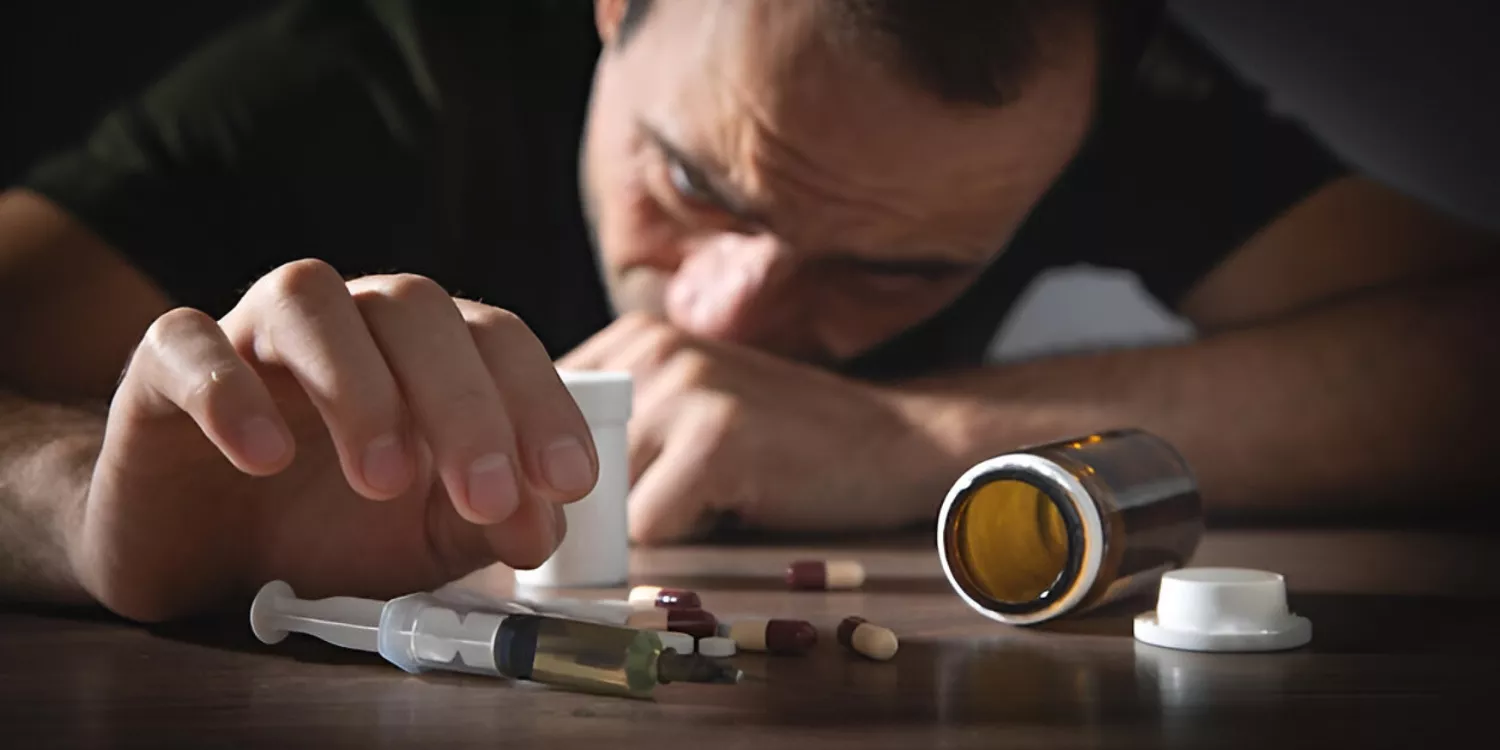Are you or someone close to you experiencing irritating or uncomfortable symptoms after completely stopping drug usage? Drug withdrawal is a very challenging and scary thing. Understanding the things to expect is the key to managing these kinds of symptoms.
In this detailed blog, we will go through different types of drug withdrawal symptoms in addition to exploring how they affect an individual’s body as well as mind. Let us dive right into it and discover what do drug withdrawal symptoms look like:
What Do Drug Withdrawal Symptoms Look Like?: Understanding What Drug Withdrawal Is
Definition & Causes of Drug Withdrawal
As per the National Institute on Drug Abuse or NIDA, drug abuse refers to the usage of one or different drugs in amounts or ways that are very dangerous to an individual. Similarly, drug withdrawal symptoms occur when an individual’s body reacts to the sudden or unexpected absence of the substances they are addicted to after prolonged use. Similarly, physiological dependence develops due to drug abuse, disrupting the internal balance of the body.
Substance dependence or drug dependence leads to withdrawal syndrome within alcohol as well as drug addicts. The normal function of the brain shafts because of continuous SUDs or Substance Use Disorders. Stopping drugs like opioids or benzos suddenly leads to the occurrence of intense reactions like nervousness, vomiting, etc.
Common Triggers
Individuals going through drug withdrawal might experience numerous triggers besides experiencing withdrawal symptoms. Factors such as the kinds of drugs used, the length of the use, as well as the quantity consumed can influence the triggers. Mixing substances also enhances the risk quotient.
Stress generally acts as a very major trigger which leads to relapse during withdrawal periods. Situational stressors like trauma or alterations in circumstances could potentially lead towards more cravings. Individuals may also struggle with witnessing reminders of their intense drug and alcohol use, such as other individuals who they consumed drugs or alcohol with or locations where they went to in order to get high.
Drug Withdrawal Symptoms: Physical and Psychological Symptoms
Physical Symptoms of Drug Withdrawal
Fatigue and lethargy are deemed the most common symptoms of withdrawal during drug withdrawal. Individuals often feel very weak and fatigued. Profuse sweating, shaking, as well as clammy skin occur very frequently too. Some may experience sensations of tingling or chills, thereby making it very hard to remain comfortable.
Pains in muscles as well as spasms are other vital signs of drug withdrawal. Trembling can make it difficult to hold objects. Gastrointestinal symptoms may also come into play. Nausea, cramps in stomach, vomiting, as well as loss of appetite can have a significant negative effect on daily activities.
Psychological Symptoms of Drug Withdrawal
Besides physical symptoms, psychological effects can also be very intense during the drug withdrawal process or phase. Individuals often face agitation, anxiety, as well as frustration. Nervousness also becomes a constant companion.
Confusion significantly disrupts an individual’s daily life. Disorientation leads to hardening even the simplest of tasks. Concentration also takes a major hit. Depression and negative thoughts cloud the mind whereas anxiety elevates fear.
Hallucination pain pictures which are real, leading to serious paranoia and delirium. Depressive and suicidal thoughts might emerge in serious cases of depression that is fueled because of withdrawal symptoms. Hence, getting immediate medical attention paired with care is a must.
Behavioral Changes Caused due to Behavioral Changes
Individuals going through the phase of drug withdrawal generally showcases enhanced agitation, irritability, as well as frustration. They may have a quick temper and easily get angered. These forms of elevated emotional responses can make interacting with others very difficult.
People may also become extremely withdrawn or less interested in terms of social activities. Alterations in behavior such as these are very common during phases of opiate withdrawal or alcohol withdrawal. It is very important to identify these indicators as part of the process of recovery.
Specific Symptoms of Withdrawal As Per Drug type
Opioids
Opioid withdrawal symptoms vary and may begin around 8 to 24 hours after the last usage of short-acting opioids. Such stimulants or symptoms can last between a period of 4 to 10 days. For opioids which are longer-acting, indications generally appear around 2 to 4 days post taking the last dose and might fade within 10 days.
Common symptoms of opioid withdrawal are nervousness, sleeping issues, nausea, diarrhea, indications of flu, body and muscle cramps, a runny nose, and lastly, excessive sweating.
Managing the aforementioned symptoms is very important for any individual who is facing opioid dependence or OUD (opioid use dependence). Drug detox can aid in easing the pain or discomfort with medications like buprenorphine or lofexidine. Medical professionals also prescribe clonidine in order to minimize some of the more intense physical sensations that are associated with withdrawal symptoms such as restlessness and palpitations.
Benzodiazepines
Benzodiazepines like Xanax, Ativan, Ativan, as well as Valium, are deemed central nervous system depressants. Stopping consumption of the drugs suddenly can lead to intense withdrawal symptoms. The mentioned symptoms often generally begin 1 to 4 days after the last dosage. They peak within the first 14 days or 2 weeks.
Benzodiazepine withdrawal includes intense anxiety and agitation. Individuals may experience sweating, enhanced heart rate, sleeping issues, nausea, hallucinations as well as seizures. Some individuals may suffer protracted withdrawal symptoms for numerous months or years. It is very important to seek addiction treatment at a good addiction treatment center for safe and comfortable detoxification from benzos.
Alcohol
Alcohol withdrawal can begin within hours after consuming the last drink. It peaks between 2 to 3 days. Severe alcohol withdrawal symptoms typically include enhanced blood pressure, a racing pulse, as well as sweating. Besides these, anxiety or hallucinations might occur as well.
Delirium tremens is considered to be one of the most dangerous withdrawal symptoms. The severe condition lasts for 3 to 4 days but can, in some cases, extend up to a week or more. Heavy drinking paves the way for intense withdrawal effects, primarily because it builds dependence on alcohol for normal body functions.
Cocaine
Cocaine withdrawal leads to numerous serious withdrawal symptoms. Individuals usually feel depressed, anxious, and extremely tired. They may face sleeping issues or sleep excessively. Many individuals also experience intense drug cravings that make it very tough to emphasize on anything else.
Behavioral change is another common withdrawal symptom during cocaine withdrawal. Paranoia, as well as irritability increase, thereby making any form of social interactions very difficult. Elevated appetite also leads to quick weight gain.
Managing Drug Withdrawal | Withdrawal Treatment
Medical Detox
Medical detox in clearing out drugs from the body. This process can take anywhere between a few days to a whole week. It is generally the first and foremost step in the treatment of drug addiction. In medical detoxification, doctors use medications such as diazepam or muscle relaxers. These facilitate easing withdrawal symptoms like insomnia and sleepiness.
Medications Used in the Process of Detox
Individuals trying to stop using drugs usually need medical help. Many medications can help in easing withdrawal symptoms. Here are some of them:
- Clonidine & Lofexidine
- These medications lessen anxiety.
- They aid in controlling sweating.
- Buprenorphine
- It aids in the management of opioid cravings.
- It also lowers withdrawal symptoms.
- Methadone
- It is an effective tool for treating opioid addiction.
- It minimizes cravings and eases the pain that withdrawal causes.
- Benzodiazepines
- These drugs help in dealing with alcohol withdrawal.
- They also help those stopping sedatives.
All of the aforementioned medications make the process of detox safer and much more comfortable.
Final Thoughts
Drug withdrawal symptoms may vary depending on the type of substance but usually involve physical, mental, as well as emotional stress. They can be intense and in some cases, very dangerous. Proper medical care, which include drug as well as alcohol rehab, aids in withdrawal management in a safe manner. Understanding precisely what to do can simplify the detox process.



